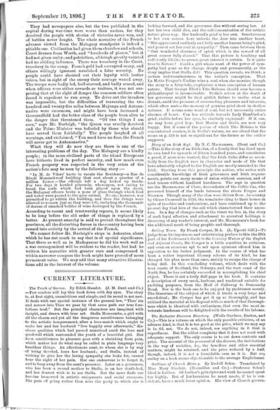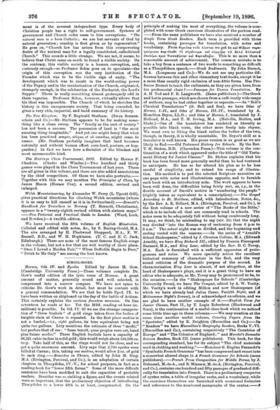Outlines of Church Histcn y. By Rudolf Sohm. Translated by
Miss Mary Sinclair. (Macmillan and Co.) —Professor Sohm's ideal is Luther. Of Luther's principles and work he cannot speak too highly. But of Lutheranism he must needs, if he is con- sistent, have a much lower opinion. His view of Church govern- meat is of the severest independent type. Every body of Christian people has a right to self-government. Systems of government and Church order seem to him corruptions. " The natural man is a born Catholic ; we are but servants of God by natural generation ; sonship is first given us by regeneration." He goes on, " Church law has arisen frcm this overpowering desire of the natural man for a legally constituted, catholicised Church." This sounds a little strange. We are not, it seems, to believe that Christ came on earth to found a visible society. On the contrary, this visible society is a human corruption, and, curiously enough—so Professor Sohm goes on to speculate—the origin of this corruption was the very institution of the Founder which was to be the visible sign of unity. "The development which was to result in the world-ruling power of the Papacy and in the secularisation of the Church, originated, strangely enough, in the celebration of the Eucharist, the Lord's Supper." There is really something almost grotesquely odd in these vagaries. Professor Sohm, however, virtually allows that his ideal was impossible. The Church of which he sketches the history is this unregenerate society. That being conceded, he gives a very able, impartial, and lucid summary of its history.



































 Previous page
Previous page